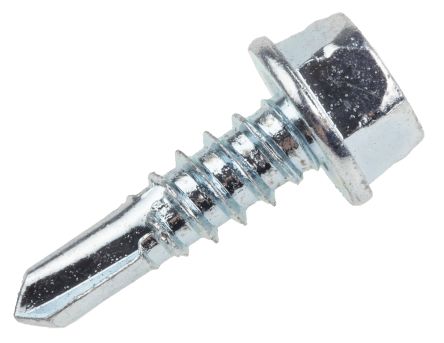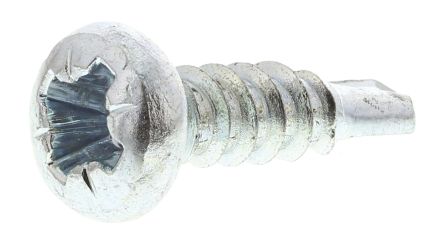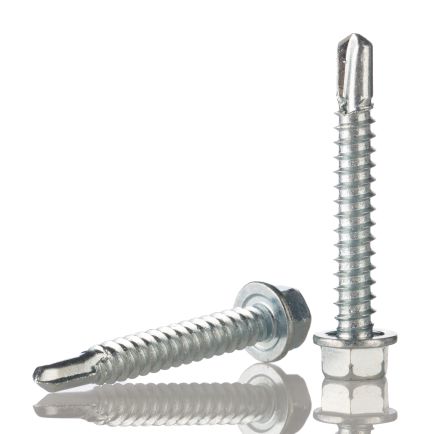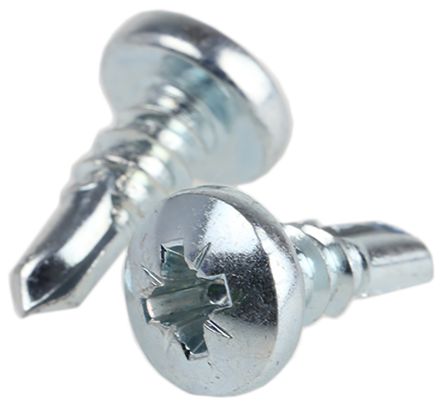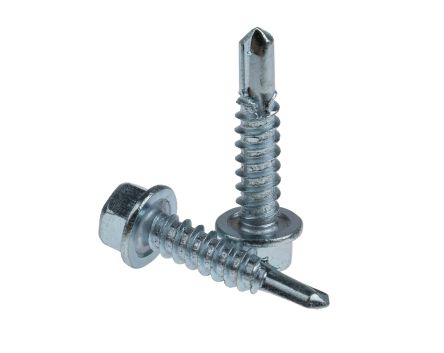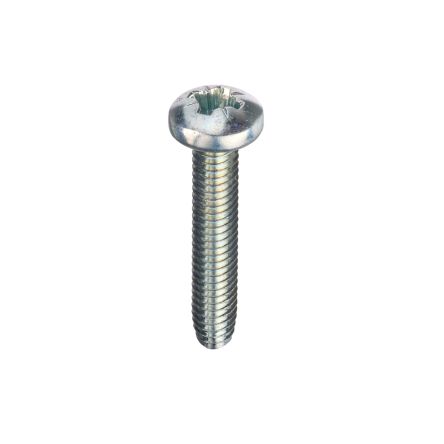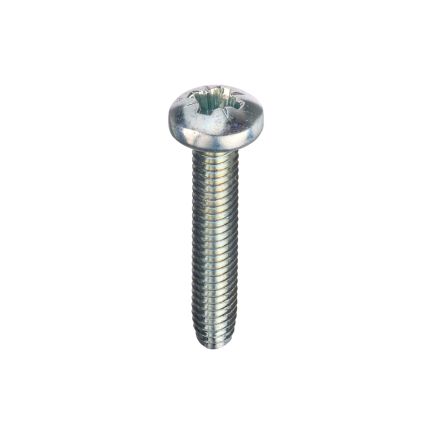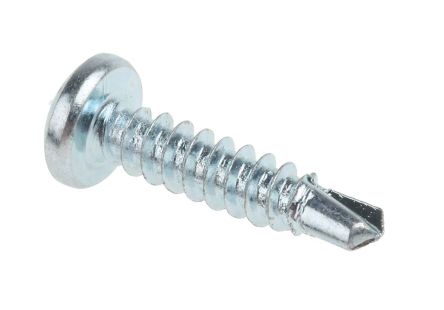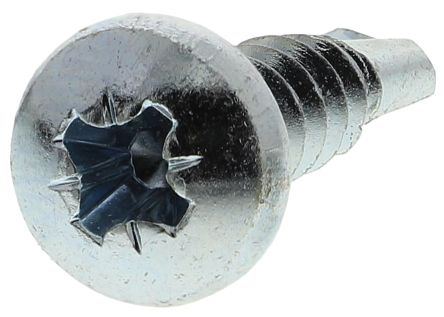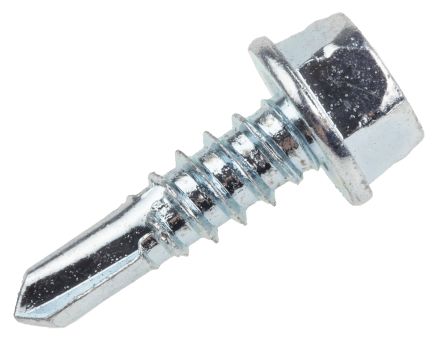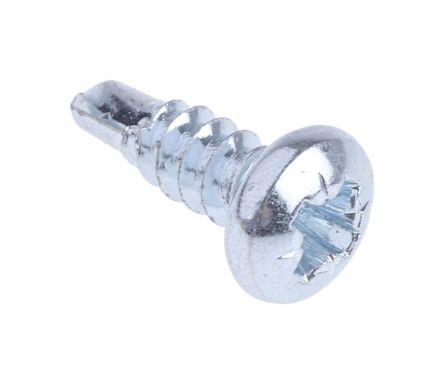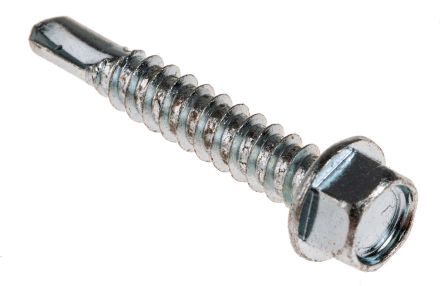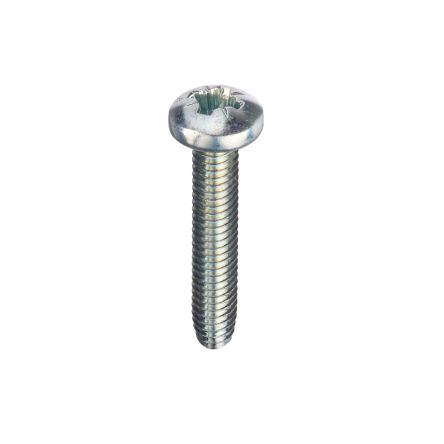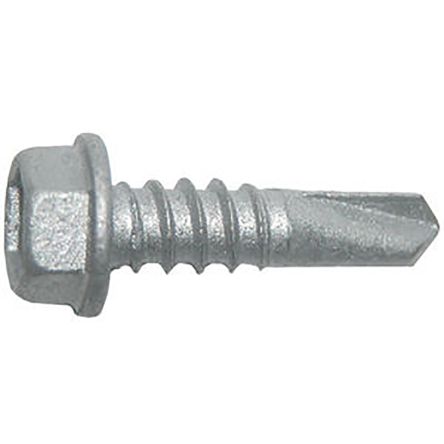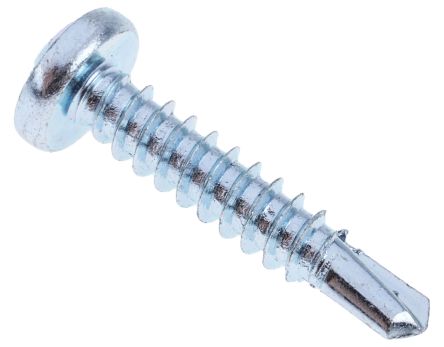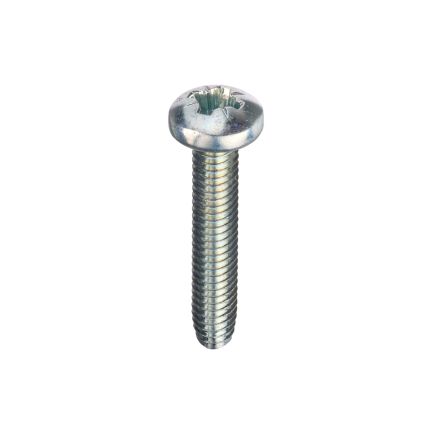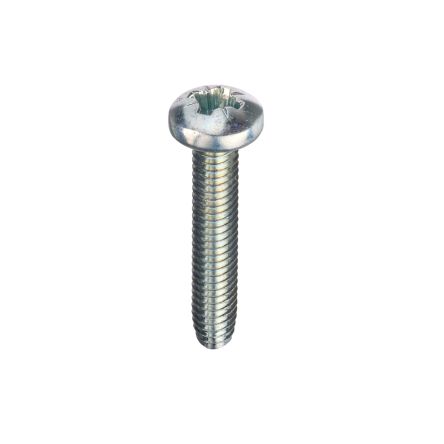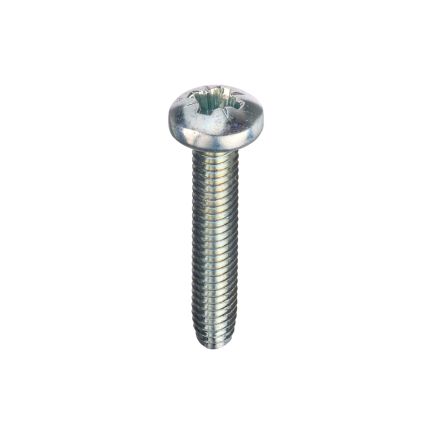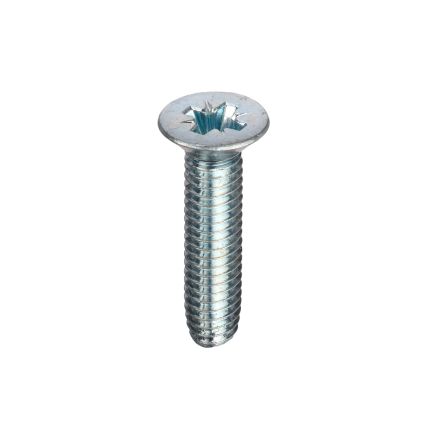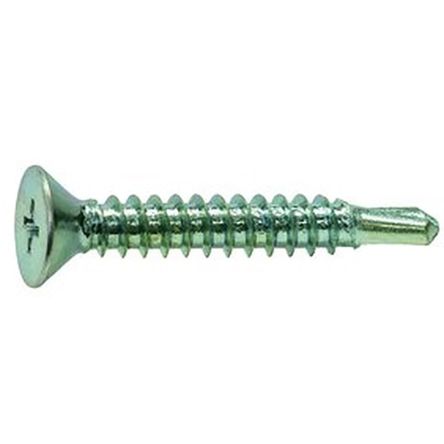- Automation & Control Gear
- Cables & Wires
- Enclosures & Server Racks
- Fuses & Circuit Breakers
- HVAC, Fans & Thermal Management
- Lighting
- Relays & Signal Conditioning
- Switches
- Batteries & Chargers
- Connectors
- Displays & Optoelectronics
- ESD Control, Cleanroom & PCB Prototyping
- Passive Components
- Power Supplies & Transformers
- Raspberry Pi, Arduino, ROCK, STEM Education & Development Tools
- Semiconductors
Self Drilling Screws
A Self-drilling screw is, essentially is a self-tapping screw with the added feature of a drill point end. Self-drilling screws eliminate the need for a pre-drilled pilot hole as they perform the drilling, tapping and fastening in one action. Hardened steel fixings are generally used when fixing metal to metal or metal to timber. You can learn more in our guide to self-drilling screws.
There are a few key things to think about when deciding what the best screw is for any application. With self-drilling the main points are;
Flute Length
The flute length on a self-drilling screw is the small section at the end of the fixing. The length will determine the thickness of the metal the fastener can be used with. The flute is the part of the self-drilling screw that sends the drilled material out from the hole. If this area becomes blocked the cutting action will eventually stop. Failure to rectify can result in overheating
Drill Point
When deciding on the length of the fixing, the length of the material the screw has to go through must be carefully thought about. The drill point is the small unthreaded section at the end of the screw. If the thread engages before the drill point is all the way through the screw will become damaged or break.
Types of self-drilling screws
Self-drilling screws are available in the same head shapes and drive types as self-tapping screws. The material and finish or plating of the screw are dependent on the materials the screws will be used with and the environment they will be subjected to.
Head Shapes
- Hexagon Washer Head
- Hexagon Flange Head
- Countersunk
- Pan Head
- Button Head
- Drive Types
- Hexagon
- Cross
- Pozi
With regards to the thread type, there are two main categories available metric (mm) thread and UTS (Unified Thread Standard).
Applications
Self-drilling screws are ideal for applications where the fastening of two materials is required. As the drilling and fastening is completed in one motion self-drilling screws are particularly useful in a variety of environments where accuracy and speed are of the essence. Some of the most common are;
- Cladding and roofing
- Steel frames
- Metal and wood frames
- Car production lines
- Sheet metal work
- HVAC ducting
Related links
- Self-Tapping Screws Guide
- Self Tapping Screws
- RS PRO Plain Stainless Steel Pan Head Self Tapping Screw, N°4 x...
- RS PRO Black Steel Self Drilling Screw
- RS PRO Black Steel Self Drilling Screw x 4in Long
- RS PRO Black Steel Self Drilling Screw x 5in Long
- RS PRO Black Steel Self Drilling Screw x 1in Long
- RS PRO Black Steel Self Drilling Screw x 1 1/4in Long
